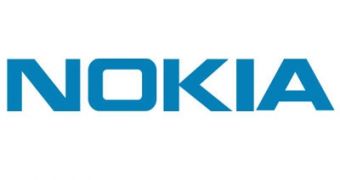Nokia has announced today that its Qt cross-platform application framework and User Interface (UI) designed for desktop and embedded platforms will be made available under the Lesser General Public License (LGPL) version 2.1 license with the release of Qt 4.5 slated for March 2009. Until now, Qt was available for the open-source community under the General Public License (GPL) license.
“Nokia is making significant contributions to open source communities through ongoing work with Qt, its contribution of Symbian OS and S60 to the Symbian Foundation and open development of the Maemo platform,” said Kai Öistämö, executive vice president, Devices, Nokia. “By moving to LGPL, opening Qt’s source code repositories and encouraging more contributions, Qt users will have more of a stake in the development of Qt, which will in turn encourage wider adoption. Nokia will be able to leverage improvements in Qt across S60 on Symbian OS, Maemo and OVI services without rewriting the source code.”
According to the company, the LGPL licensing will offer open-source and commercial developers increased flexibility and a more permissive licensing than GPL. Moreover, the Qt source code repositories are reported to become publicly available so as to encourage desktop and embedded developer communities. The evolution of the Qt framework will be actively driven by developers through this change.
“We applaud Nokia's move to simplify the licensing of Qt,” said Joe Miller, vice president, Platform & Technology Development, Linden Labs. “We find Qt to be intriguing and innovative technology regardless of licensing, but the new licensing has greatly simplified our decision to pursue QtWebkit for integration into Second Life.”
In addition, Qt 4.5 will fall under commercial licensing terms as well, yet previous Qt licensing will remain unchanged. The company also announced that it would expand service offerings for Qt so that all development projects could benefit from the same level of support, independent of the selected license.
“Broader use of Qt by even more leading companies will result in valuable feedback and increased contributions, ensuring that Qt remains the best-in-class, cross-platform UI and application framework. The accelerated development of Qt will allow developers, including Nokia, to deliver better devices and applications, reduce time to market and enable a wider deployment base for their solutions,” said Sebastian Nyström, vice president, Qt Software, Nokia.
“Combining Nokia's OS-independent Qt application framework with Freescale's enablement software offers OEMs and applications developers a unique freedom of choice in selecting the most appropriate Freescale chipset while allowing the developer to develop and maintain a single code base of their application,” says Raja Tabet, vice president of Solutions and Enablement Technology at Freescale. “The LGPL model is an excellent and timely licensing option that will accelerate the adoption/deployment of the Freescale/Qt combined platform.”
More information on Qt and on the LGPL licensing can be found on the new domain the company has made available.

 14 DAY TRIAL //
14 DAY TRIAL //